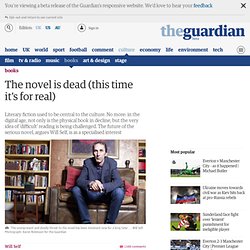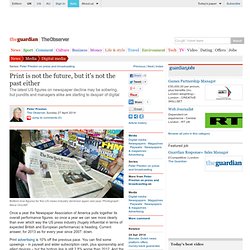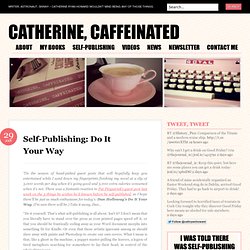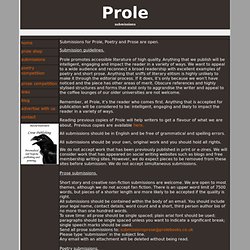

Aerogramme Writers' StudioOpportunities for Writers: August and September 2014. The novel is dead (this time it's for real) If you happen to be a writer, one of the great benisons of having children is that your personal culture-mine is equipped with its own canaries.

As you tunnel on relentlessly into the future, these little harbingers either choke on the noxious gases released by the extraction of decadence, or they thrive in the clean air of what we might call progress. A few months ago, one of my canaries, who's in his mid-teens and harbours a laudable ambition to be the world's greatest ever rock musician, was messing about on his electric guitar. Breaking off from a particularly jagged and angry riff, he launched into an equally jagged diatribe, the gist of which was already familiar to me: everything in popular music had been done before, and usually those who'd done it first had done it best.
Besides, the instant availability of almost everything that had ever been done stifled his creativity, and made him feel it was all hopeless. Print is not the future, but it's not the past either. Bottom-line figures for the US news industry declined again last year.

Photograph: Akira Ono/AP Once a year the Newspaper Association of America pulls together its overall performance figures, so once a year we can see more clearly than ever which way the US press industry (hugely influential in terms of expected British and European performance) is heading. Current answer, for 2013 as for every year since 2007: down. Print advertising is 10% off the previous pace. You can find some upswings – in paywall and wider subscription cash, plus sponsorship and allied devices – but the bottom line is still 2.8% worse than 2012.
Gender Disparity in Poetry Publishing: it’s about more than the numbers. ‘Blind Starlet’ by Geraldine Swayne I am an experienced and well published poet yet have had great difficulty in using the personal first person or autobiographical material in my work. My barriers to the ‘I’ are complex I attribute the reasons at least partly to an English working class, post-war, Methodist upbringing where to put oneself forward was considered wrong and the community was more important than the individual. As poet Helen Farish noted in the journal Life Writing, ‘[W]omen have internalized fears of being and saying themselves’. However, the personal barriers would have been easier to overcome had it not been for my awareness of the critical response, or lack of it, to women’s poetry with autobiographical elements. Photo by Symantha Anne (copied from Flickr) Self-Publishing: Do It Your Way.
‘Tis the season of hand-picked guest posts that will hopefully keep you entertained while I sand down my fingerprints finishing my novel at a clip of 3,000 words per day when it’s going good and 3,000 extra calories consumed when it’s not.

There was a fantastic reaction to Pat Fitzpatrick’s guest post last week on the 3 things he wishes he’d known before he self-published, so I hope there’ll be just as much enthusiasm for today’s: Dan Holloway’s Do It Your Way. (I’m sure there will be.) Take it away, Dan… “Do it yourself. Prole. Submissions for Prole, Poetry and Prose are open.

Submission guidelines. Prole promotes accessible literature of high quality. Anything that we publish will be intelligent, engaging and impact the reader in a variety of ways. We want to appeal to a wide audience and reconnect a broad readership with excellent examples of poetry and short prose. Anything that sniffs of literary elitism is highly unlikely to make it through the editorial process. Remember, at Prole, it’s the reader who comes first. Reading previous copies of Prole will help writers to get a flavour of what we are about. We do not accept work that has been previously published in print or e-zines. Prose submissions. Short story and creative non-fiction submissions are welcome. All submissions should be contained within the body of an email. Send all prose submissions to: submissionsprose@prolebooks.co.uk Please type ‘submission’ in the subject line.
Publishing is back—so long as successful authors give up on writing. Parents whose offspring aspire to artistic careers find themselves in the invidious position of either trying to crush their children’s hopes or encouraging a pursuit with poor prospects that will probably pay beans. Had I a seven-year-old who declared that she wanted to be a writer, as I did at that age, I worry that I might spontaneously exclaim, “Are you crazy?” Make no mistake, I’ve led a great life—yet one that, fiscally anyway, may be decreasingly on offer for young writers. Advances are down. Typically for fiction these days, my latest novel has sold roughly two (for the author, less lucrative) e-books for every hardback. Publishers are more impatient than ever—and they were never patient—with a first novel that doesn’t make a splash.